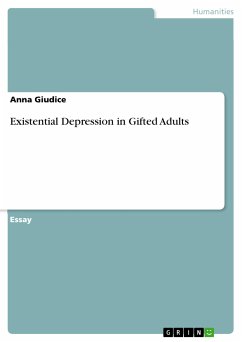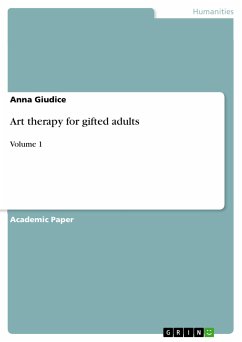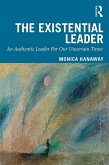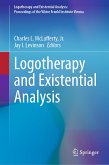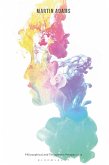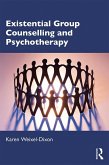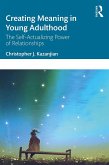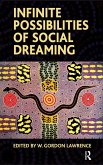Essay from the year 2024 in the subject Psychology - Clinical Psychology, Psychopathology, Prevention, grade: 10, Lesley University, language: English, abstract: This essay deals with existential depression in adults and discusses helpful and unhelpful methods to handle it. According to James T. Webb, existential issues often stem from the attempt to comprehend oneself and the world, leading to feelings of aloneness and existential depression. These concerns are more prevalent among individuals with higher intelligence, who are inclined to question, analyze, and reflect. Gifted individuals are predisposed to existential distress due to their idealism and ability to envision possibilities. They observe discrepancies between their ideals and reality and feel limited in their capacity to effect change. They may challenge societal traditions, question human behavior, and express skepticism about the possibility of making a meaningful impact as individuals. These observations and concerns are frequently reported among gifted children and adults. From an early age, some gifted children, particularly those displaying exceptional aptitude, may grapple with existential issues and experience a sense of alienation from their peers. Their attempts to communicate their existential thoughts and concerns are often met with reactions that range from puzzlement to hostility. The act of raising such profound questions challenges conventional norms and may lead others to distance themselves from or reject these children. This reveals to the children that most of their peers do not share their concerns and are instead preoccupied with more immediate matters and conforming to societal expectations. Confronted with this realization, these gifted young individuals may experience internal conflict or discord with those around them.
Dieser Download kann aus rechtlichen Gründen nur mit Rechnungsadresse in A, B, BG, CY, CZ, D, DK, EW, E, FIN, F, GR, HR, H, IRL, I, LT, L, LR, M, NL, PL, P, R, S, SLO, SK ausgeliefert werden.

